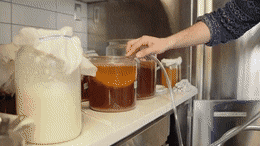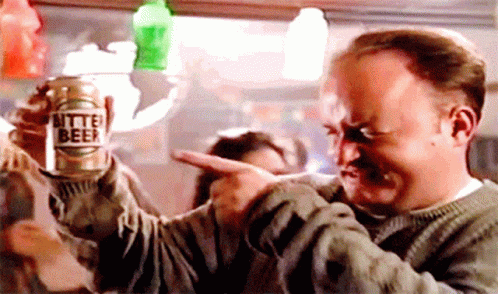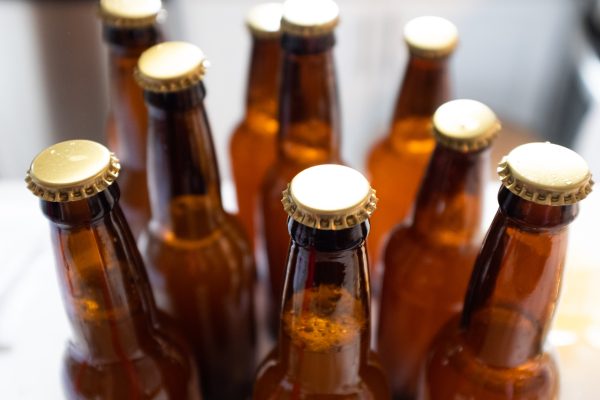Photo: John Peabody (Getty Images)
National Beer Day is celebrated every year is celebrated very year on April 7th. This date was selected because it was the date the Cullen–Harrison Act (which legalized the sale of low alcohol beverages like beer) was enacted after being signed into law by President Franklin Roosevelt back in 1933. To celebrate this most important holiday, you’ll probably throw back a few IPAs, pilsners, lagers, and fruited sour beers.
But, on top of that, some of you might think it’s a great day to start brewing your own beer. Before you spend all of money on expensive equipment, there are a few things you should know. Below, you’ll find some things you need to be aware of before you start on your (likely torturous, potentially disastrous) beer journey.
Home Brewing Honest Timeline
-
Read a book first.

Before you deiced to pay for brewing equipment and turn your kitchen into a brewery, read a book first. There are many homebrewing books on the market that will help you decide what you do and don’t need to buy. At the very least, read a comprehensive article on the subject.
-
Homebrewing equipment isn’t cheap.

You might not realize it, but you need to buy some fairly expensive equipment to brew beer. Even a cheap kit (and we don’t suggest going cheap unless you want your beer to taste cheap) will set you back more than $100. Think about that before you decide not to just crack open a six-pack of your favorite beer.
-
You won’t be good at it at first (if ever).

Like with anything, it takes training, skill, and patience to make great beer. Even if you aren’t getting super innovative and are just making basic recipes, there’s a good chance you’ll do something wrong during the process and your beer will taste more like fizzy, muddy water than beer.
-
Keep it simple, stupid.

According to an article on homebrewing in apartments, on rent.com, keeping it easy and simple when you’re starting out is key. Don’t use elaborate brewing equipment and pay close attention to details and your beer should be at least drinkable.
-
Sanitation is the most important word.

When it comes to brewing beer, there’s nothing more important than sanitation and sterilization. If bacteria or other unexpected things get into your beer, it could end up skunky, yeasty, funky, and downright undrinkable.
-
Don’t ferment in plastic.

Unless you want your beer to taste like melted plastic, we suggest buying a homebrewing kit that includes a stainless steel or glass fermenter instead of a cheap plastic one. For one thing, they are much easier to sanitize and won’t change the way your beer tastes and the amount of oxygen that gets into it like plastic does.
-
Don’t lose your patience.

You spent some chase buying brewing equipment and you’ve already told your friends that you’re brewing your own beer. They’re going to want to taste it. You can’t just give up after a few bad batches because they’ll never let you forget it. Keep trying and stay focused and you might actually succeed in making palatable beer (or not).
-
Keep the aspirations to a minimum.

You wouldn’t go outside to your driveway, hoist up a few three-pointers and think you’re going to be drafted into the NBA, would you? The same goes for homebrewing. Just because you’ve brew a few decent tasting beers from set recipes that doesn’t mean you’re going to be the next Garrett Oliver or Jim Koch. Just enjoy your beer or buy another sixer of beer that isn’t terrible.









